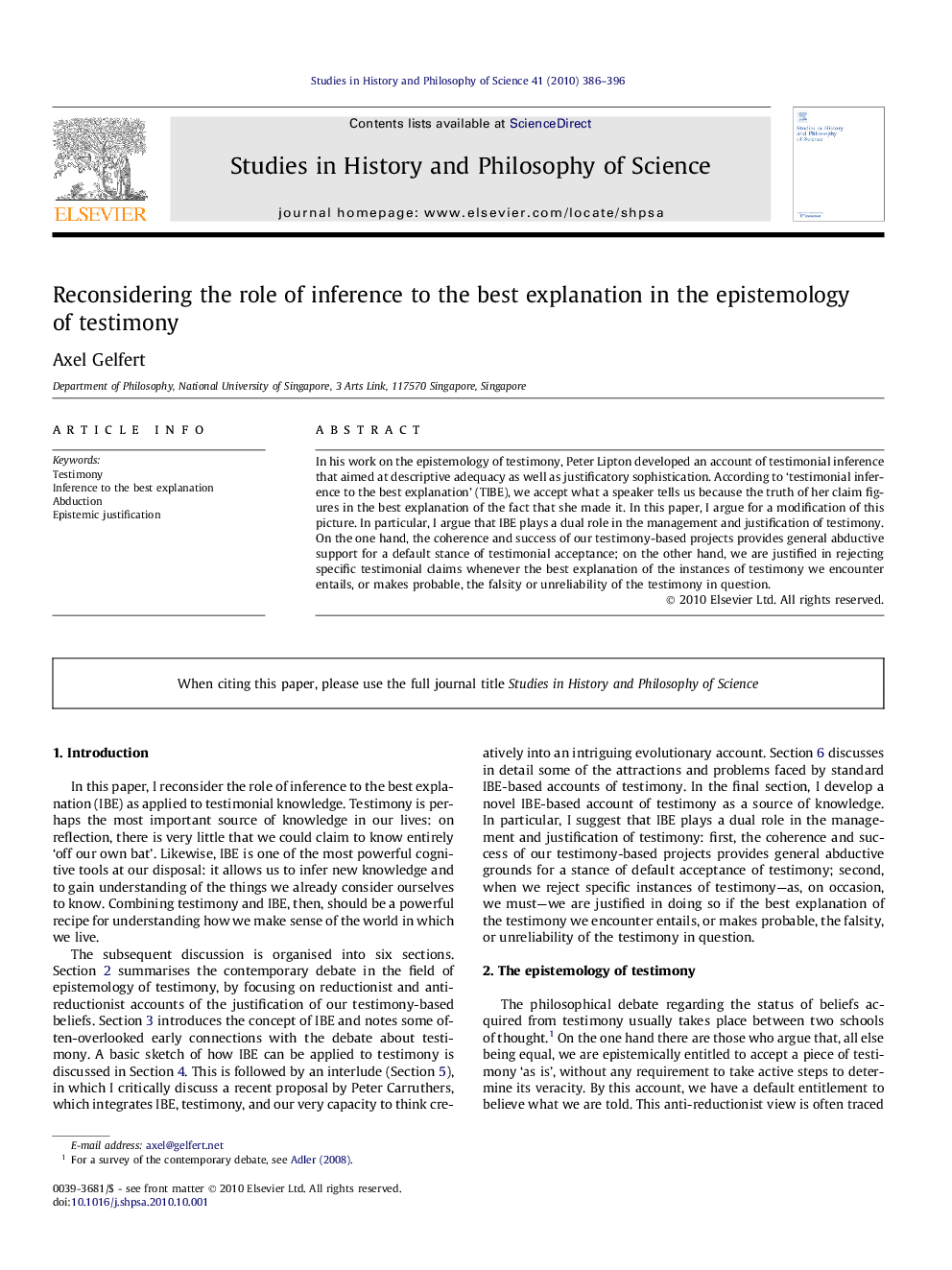| Article ID | Journal | Published Year | Pages | File Type |
|---|---|---|---|---|
| 1160629 | Studies in History and Philosophy of Science Part A | 2010 | 11 Pages |
Abstract
In his work on the epistemology of testimony, Peter Lipton developed an account of testimonial inference that aimed at descriptive adequacy as well as justificatory sophistication. According to 'testimonial inference to the best explanation' (TIBE), we accept what a speaker tells us because the truth of her claim figures in the best explanation of the fact that she made it. In this paper, I argue for a modification of this picture. In particular, I argue that IBE plays a dual role in the management and justification of testimony. On the one hand, the coherence and success of our testimony-based projects provides general abductive support for a default stance of testimonial acceptance; on the other hand, we are justified in rejecting specific testimonial claims whenever the best explanation of the instances of testimony we encounter entails, or makes probable, the falsity or unreliability of the testimony in question.
Related Topics
Social Sciences and Humanities
Arts and Humanities
History
Authors
Axel Gelfert,
